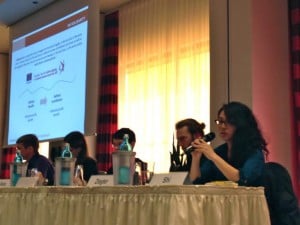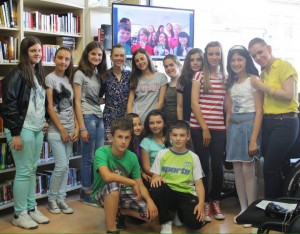
Lin Shi, 2013-2014, European Union (right, holding microphone) on a panel presentation during the 60th annual Berlin Seminar for American Fulbright Scholars
The Fulbright-Schuman program afforded me nine amazing months of research and life experience in the European Union. This particular grant was unique in that my host “country” was not one in particular, but the European Union as a whole. One requirement of my grant was that I needed to spend time in at least two host countries. So, for the sake of my research in pensions, I chose to spread my time between the Netherlands and Belgium.
The subject of pensions has a reputation for being a not-so-interesting topic, but it is tremendously important. Currently in the United States, pension plans are shifting from traditional pensions with guaranteed monthly benefits provided by the employer, to plans like the 401(k), which are based largely on employee savings. Over 30% of non-retirees have not saved for retirement; almost 60% have saved less than $25,000, which is far from sufficient. Europe faces its own retirement concerns, as it is the only continent that is projected to have a negative population growth rate over the next 50 years; by 2060, there will be only two people of working age in the EU to sustain every person aged over 65, as compared to a ratio of four to one today. For my research, I collaborated with the Center of Research in Public and Population Economics in Liège, Belgium and with the Erasmus School of Economics in Rotterdam, the Netherlands to study a mix of workforce exit patterns, pension risk appetite, and pension fund management diversity, all in an international context.


